
Alex or Aleck Miller, known later in his career as Sonny Boy Williamson, was an American blues harmonica player, singer and songwriter. He was an early and influential blues harp stylist who recorded successfully in the 1950s and 1960s. Miller used various names, including Rice Miller and Little Boy Blue, before calling himself Sonny Boy Williamson, which was also the name of a popular Chicago blues singer and harmonica player. To distinguish the two, Miller has been referred to as Sonny Boy Williamson II.

Marion Walter Jacobs, known as Little Walter, was an American blues musician, singer, and songwriter, whose revolutionary approach to the harmonica had a strong impact on succeeding generations, earning him comparisons to such seminal artists as Django Reinhardt, Charlie Parker and Jimi Hendrix. His virtuosity and musical innovations fundamentally altered many listeners' expectations of what was possible on blues harmonica. He was inducted into The Rock and Roll Hall of Fame in 2008, the first and, to date, only artist to be inducted specifically as a harmonica player.

Checker Records is an inactive record label that was started in 1952 as a subsidiary of Chess Records in Chicago, Illinois. The label was founded by the Chess brothers, Leonard and Phil, who ran the label until they sold it to General Recorded Tape (GRT) in 1969, shortly before Leonard's death.

James Henry Cotton was an American blues harmonica player, singer and songwriter, who performed and recorded with many fellow blues artists and with his own band. He also played drums early in his career.
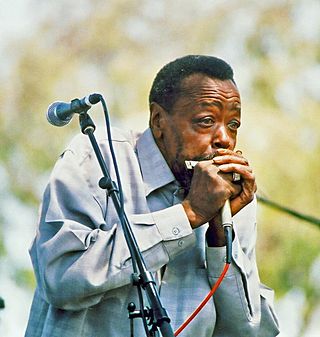
Carey Bell Harrington was an American blues musician who played harmonica in the Chicago blues style. Bell played harmonica and bass guitar for other blues musicians from the late 1950s to the early 1970s before embarking on a solo career. Besides his own albums, he recorded as an accompanist or duo artist with Earl Hooker, Robert Nighthawk, Lowell Fulson, Eddie Taylor, Louisiana Red and Jimmy Dawkins and was a frequent partner with his son, the guitarist Lurrie Bell. Blues Revue called Bell "one of Chicago's finest harpists." The Chicago Tribune said Bell was "a terrific talent in the tradition of Sonny Boy Williamson and Little Walter." In 2023, he was inducted in the Blues Hall of Fame.

J. B. Lenoir was an American blues guitarist and singer-songwriter, active in the Chicago blues scene in the 1950s and 1960s.

"Bring It On Home" is a blues song written by American music arranger and songwriter Willie Dixon. Sonny Boy Williamson II recorded it in 1963, but the song was not released until 1966. Led Zeppelin adapted it in part as a homage to Williamson in 1969 and subsequently, the song has been recorded by several artists.
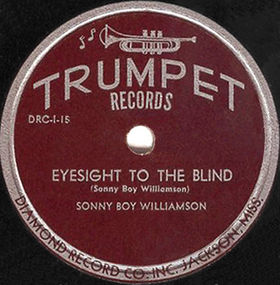
"Eyesight to the Blind" is a 12-bar blues song written and recorded in 1951 by Sonny Boy Williamson II. He also recorded the related songs "Born Blind", "Unseeing Eye", "Don't Lose Your Eye", and "Unseen Eye" during his career. The Larks, an American rhythm and blues group, recorded the song, which reached number five on the R&B charts in 1951. Several musicians subsequently recorded it in a variety of styles. The Who adapted Williamson's song for their rock opera Tommy.

Sonny Boy Williamson & the Yardbirds is a live album by Chicago blues veteran Sonny Boy Williamson II backed by English rock band the Yardbirds. It was recorded at the Crawdaddy Club in Richmond, Surrey on December 8, 1963. However, the performances were not released until early 1966, after a string of Top 40 hits by the Yardbirds.

William "Billy Boy" Arnold is an American blues harmonica player, singer and songwriter. Arnold is a self-taught harmonica player and has worked with blues legends such as Bo Diddley, Johnny Shines, Otis Rush, Earl Hooker, Howlin' Wolf, Muddy Waters and others.
"One Way Out" is a blues song that was recorded in the early 1960s by both Sonny Boy Williamson II and Elmore James. A reworking of the song by G. L. Crockett, titled "It's a Man Down Here", appeared on the Billboard record charts in 1965. In 1971, the Allman Brothers Band recorded an updated live version of the song, which was included on their popular Eat a Peach album (1972).

Willie Lee "Big Eyes" Smith was an American electric blues vocalist, harmonica player, and drummer. He was best known for several stints with the Muddy Waters band beginning in the early 1960s.

Lafayette Leake was an American blues and jazz pianist, organist, vocalist and composer who played for Chess Records as a session musician, and as a member of the Big Three Trio, during the formative years of Chicago blues. He played piano on many of Chuck Berry's recordings.
Joseph Leon "Jody" Williams was an American blues guitarist and singer. His singular guitar playing, marked by flamboyant string-bending, imaginative chord voicings and a distinctive tone, was influential in the Chicago blues scene of the 1950s.
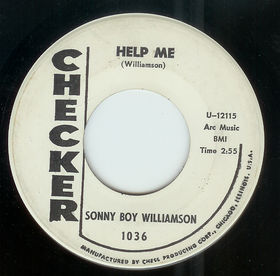
"Help Me" is a blues standard first recorded by Sonny Boy Williamson II in 1963. The song, a mid-tempo twelve-bar blues, is credited to Williamson, Willie Dixon, and Ralph Bass and is based on the 1962 instrumental hit "Green Onions" by Booker T. and the MGs. "Help Me" became a hit in 1963 and reached number 24 in the Billboard R&B chart.
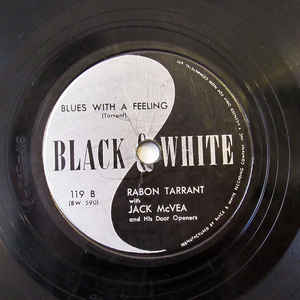
"Blues with a Feeling" is a blues song written and first recorded by Rabon Tarrant with Jack McVea and His All Stars in 1947, as the B-side of "Slowly Goin' Crazy Blues". Although the original release was commercially unsuccessful, the song later became an important hit for Little Walter, with whom it is usually identified.

His Best is a 1997 greatest hits compilation album by Sonny Boy Williamson II released by Chess and MCA Records in May as a part of The Chess 50th Anniversary Collection, which released many albums titled His Best for musicians such as Bo Diddley, Little Walter, and others.
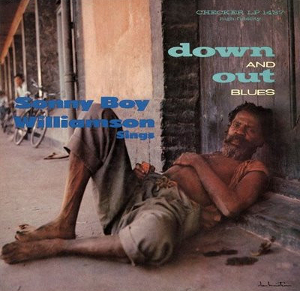
Down and Out Blues is the first LP record by American blues musician Sonny Boy Williamson. The album was released in 1959 by Checker Records.
Joe Bennie Pugh, known as Forrest City Joe or Forest City Joe, was an American blues musician who is mainly remembered for his ability as a harmonica player. He performed with other major blues acts of the period; he was the harmonica player in Muddy Waters's first band and regularly performed in the Chicago area. Despite his meager recording career, Joe was considered one of the top harmonica players of the era.
"Bye Bye Bird" is a harmonica-driven blues song written by Willie Dixon and Sonny Boy Williamson II. In 1963, Checker Records issued it as the B-side of Williamson's single "Help Me", which was his last single to reach the record charts.
















